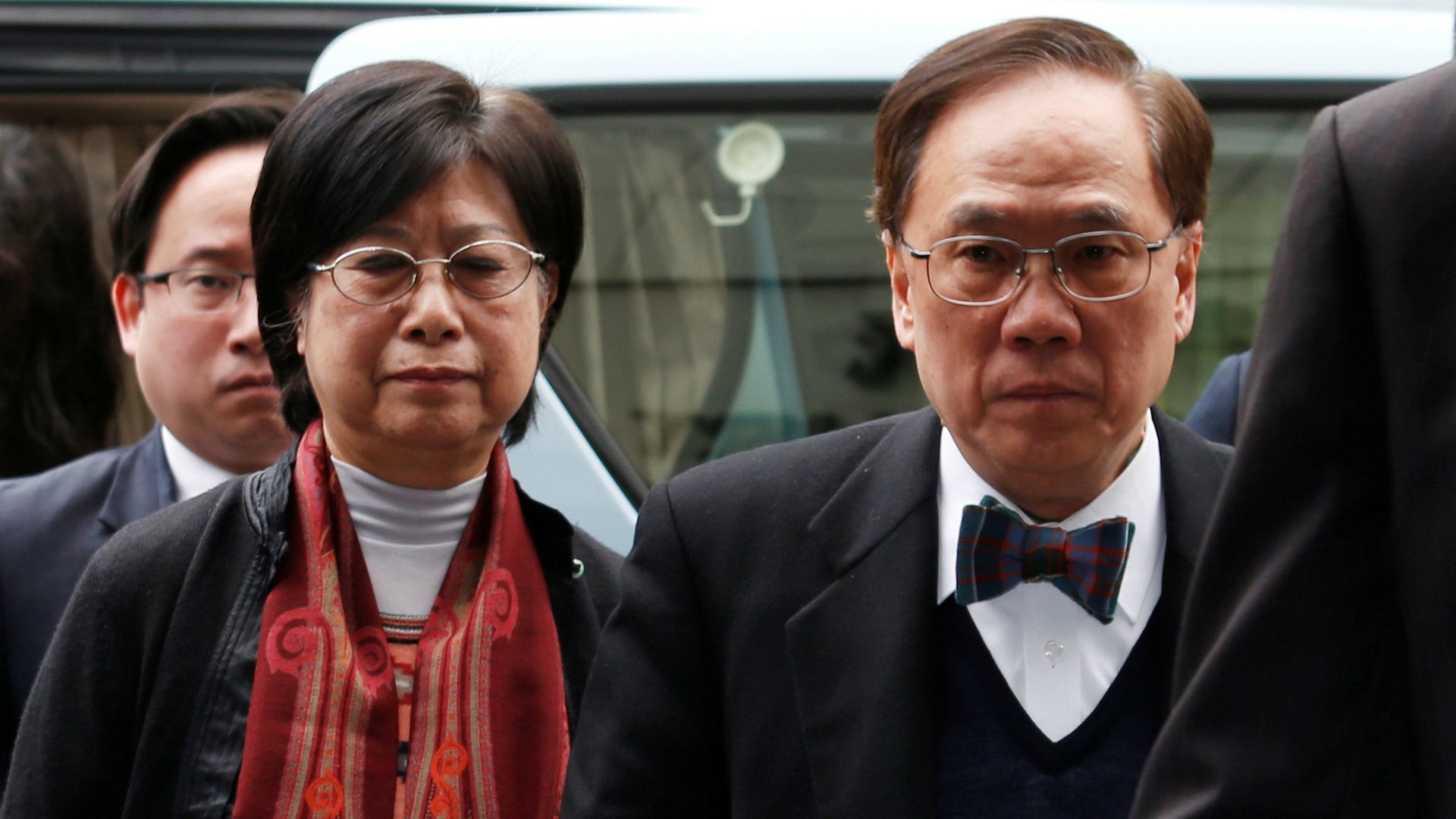Hong Kong’s former leader Donald Tsang just became the highest-ranking official to land in prison
Hong Kong just witnessed its former leader walking out of a courthouse in handcuffs.


Hong Kong just witnessed its former leader walking out of a courthouse in handcuffs.
Today the city’s High Court sentenced Donald Tsang, who served as chief executive from 2005 to 2012, to 20 months in prison for “misconduct.” The decision makes Tsang the highest-ranking official ever to serve prison time in Hong Kong, and highlights the tainted legacies that all three of Hong Kong’s post-handover leaders have left or will leave.
Tsang was charged with two counts of misconduct in October 2015 (paywall). The first involved him leasing a luxury apartment in Shenzhen on favorable terms from property developer Wong Cho-bau, in exchange for granting a broadcasting license to Wave Media, in which Wong held significant shares. The second involved him granting an award to architect Barrie Ho, who also happened to be responsible for refurbishing the apartment complex.
Tsang was found guilty of the first charge and cleared of the second. A retrial will also take place in September for additional bribery charges related to the property transaction that the jury did not come to a verdict on.
According to the South China Morning Post, court justice Andrew Chan reduced Tsang’s sentence from 30 to 20 months in light of his public service. Tsang’s wife has vowed to launch an appeal.
The sentencing further dampens the legacies left by each of the city’s chief executives who have held office since Hong Kong was handed over to the People’s Republic of China in 1997.
In 2005, Tung Chee-hwa, Tsang’s predecessor and Hong Kong’s first chief executive as a special administrative region in China, resigned from his post citing “health concerns.” Yet many believe that party leaders in Beijing sacked him due to waning popularity in Hong Kong—driven largely by efforts to pass an “anti-subversion” law that drew mass protests.
CY Leung, Hong Kong’s current chief executive, is following a similar pattern. In December, Leung shocked the city when he announced he would not seek a second term in order to spend more time with his family. Leung also faced flagging approval ratings, and his failure to rally for electoral reforms helped bring about the Umbrella Movement protests in 2014.
Many now wonder if Leung will face a sentence similar to Tsang’s. In 2014 Fairfax Media reported that Leung agreed to receive a HK$50 million (US$6.4 million) payment from Australian engineering firm UGL, Leung’s former employer. Leung inked the deal in 2011, after he already announced his bid to run for office, and did not declare the payment to Hong Kong’s executive council.
Whereas Tsang’s case was brought to court and ended in a sentence, it’s not clear if Leung’s will get that far. The government has thwarted efforts by Hong Kong’s anti-graft agency to complete a formal investigation of the incident, and he has yet to face any charges. At best, Tsang’s sentencing suggests that Hong Kong’s government might be corrupt, but nevertheless remains accountable to a competent judiciary. Yet if Leung goes unprosecuted, even that assumption might be too optimistic.